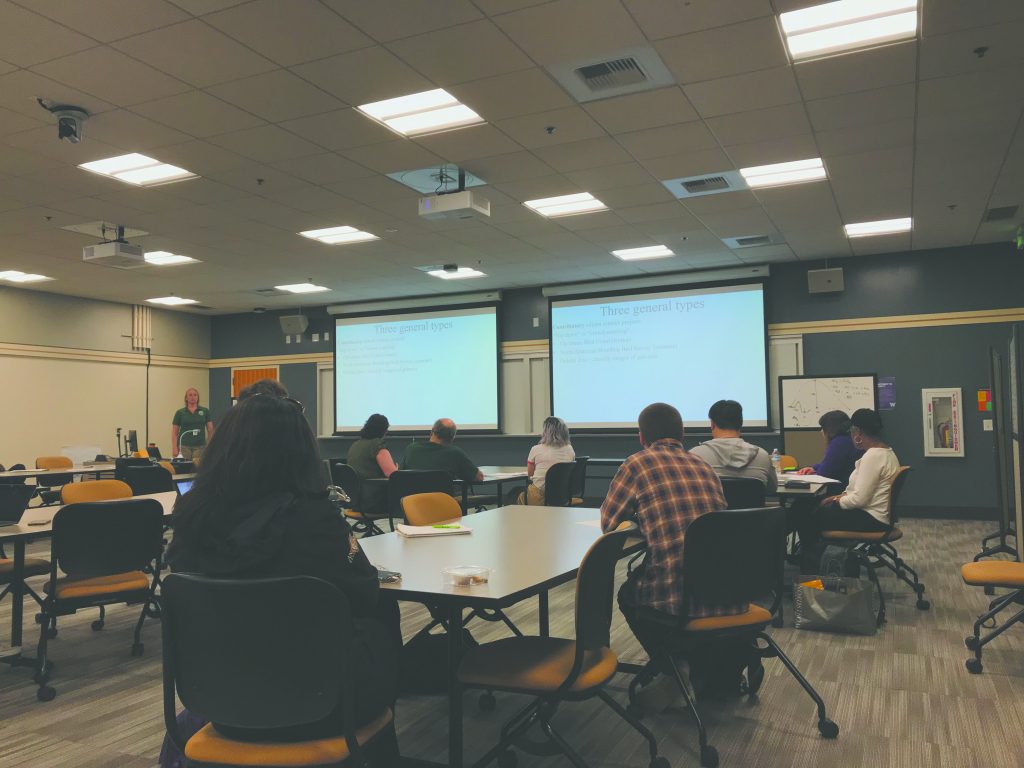Citizen Science talk provides scientific research opportunities
In the latest installment of UW Tacoma’s Environmental Seminars, Citizen Science Coordinator Stephanie Kuhns presented students with volunteer opportunities that benefit the environment.
Kuhns — who spoke with students May 6 in UWT’s science building — works for the Washington State Department of Fish and Wildlife. Before moving to Washington State from Salem, Oregon, she attended Cal State Fresno and Alaska Pacific University and worked at the Fish and Wildlife Service and Bureau of Land Management in Anchorage, Alaska.
In describing citizen science, Kuhns offered alternate names for the term, including community science.
“I feel like [community science] is more inclusive because we are all part of the community of earth,” Kuhns said.
Though the dictionary defines citizen science as “scientific work undertaken by members of the general public,” Kuhns simplified the term to the involvement of volunteers in scientific research.
Investing time into local studies and projects benefits both citizens and the community. In addition to reducing costs in potentially expensive projects, citizen science increases social capital.
“There’s relationship building between participants themselves … but then between volunteers and community leaders,” Kuhns said. “All of these people are working together on citizen science projects, whether they are participating, or receiving data or using information to make policy changes.”
However, challenges arise from citizen science. Kuhns highlighted a lack of commitment in some volunteers who can only provide a finite amount of time.
“Volunteers have lives. … They are humans,” Kuhns said. “They have their own interests, and are doing citizens science projects on their free time. Sometimes, life gets in the way.”
In cases where projects require multiple site visits, commitment is harder to ensure from volunteers. In other cases, projects are available to anyone with a computer and internet access.
Locally, the Point Defiance Zoo and Aquarium partnered with Northwest Trek Wildlife Park to create the Grit City Carnivore Project. The study observes coyotes and raccoons in Pierce County.
“[The project] is looking at carnivores in the city,” Kuhns said. “Coyotes and raccoons are actually pretty common here in Tacoma. You might not think about it … but they can survive here, and they thrive.”
The study aims to locate ‘hotspots’ of where human and carnivore interactions occur in Pierce County. To participate, download the iNaturalist application, and notify the app if you spot a raccoon or coyote.
Other resources for citizen science projects include zooniverse.org and scistarter.org. Both websites provide studies open for public participation.
Kuhns stressed the availability of the projects, pushing the message that contributing to local scientific research is accessible to all.
“These projects really are for everybody,” Kuhns said. “Regardless of your technical knowledge or your background; if you have an interest in something, there’s probably some type of collaborative project that you can get involved in.”



